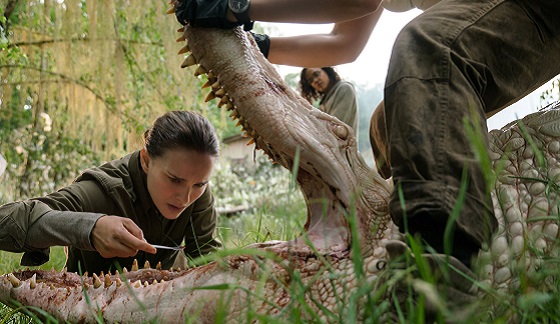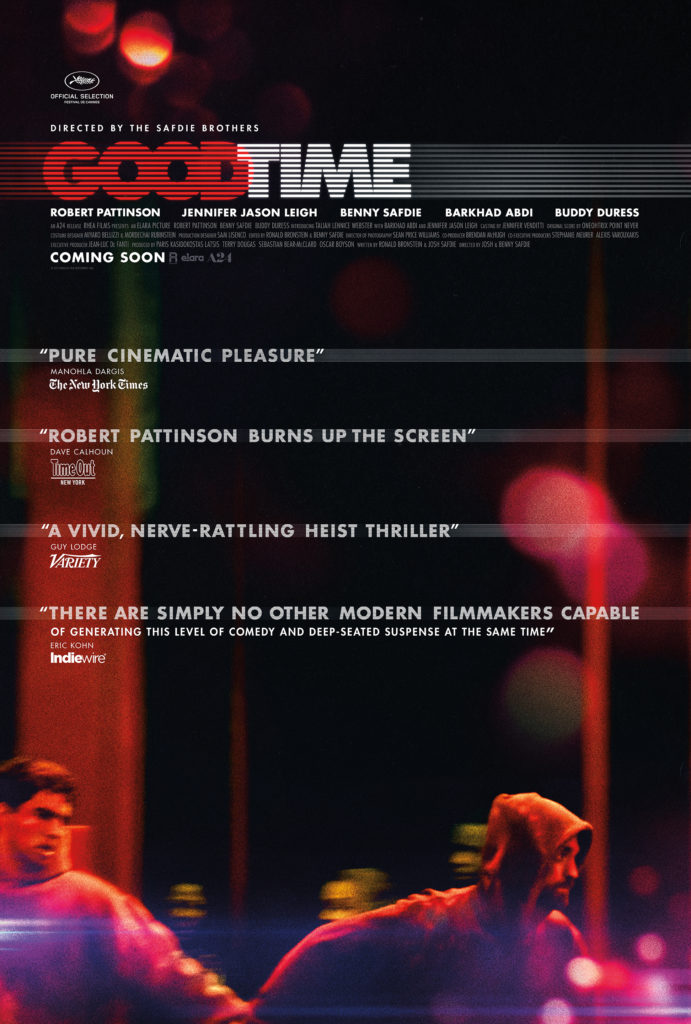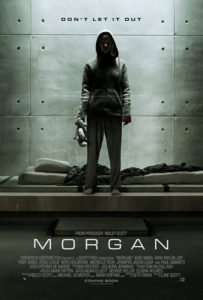Quentin Tarantino’s eighth film, the aptly titled Hateful Eight, is now open in its limited release ‘Roadshow’ engagement for the next two weeks across the US and Canada. For film lovers, Tarantino is harkening back to a style of movie presentation in ultra wide 70 millimeter film that comes complete with a musical overture and intermission. It’s a must for Tarantino fans and I can’t wait to revisit this shocking murder mystery in the old west very soon.
Hateful Eight centers around ‘Hangman’ John Ruth (Kurt Russell), a bounty hunter chained to his bounty, the devious Daisy Domergue (played with absolute venom by Jennifer Jason Leigh). The angry pair’s stagecoach is stranded in a blizzard in the mountains of Wyoming en route to Domergue’s date with the gallows. They take shelter at the only inn midway to their destination where they are locked in with a host of other shady stragglers bearing their own secrets. Tarantino ratchets up the claustrophobia and tension from an extremely strong screenplay in the hands of a brilliant cast.
Seven of the Eight joined director Tarantino and moderator Josh Horowitz (MTV) prior to the film’s release at their New York press conference where the enthusiastic director discussed his thoughts behind the roadshow format and basically received high praise from his all-star cast including Russell, Leigh, Bruce Dern, Tim Roth, Michael Madsen, Demian Bichir and Walton Goggins.
Tarantino, an emphatic supporter of film over digital described how he and The Weinstein Company set up the Roadshow:
QUENTIN TARANTINO: The Weinstein Company has done an amazing thing–Just to put it in perspective, Warner Brothers put their entire weight behind Christopher Nolan when he did Interstellar. Never the less, they only played in about 11 venues in the course of his 70mm run, we are playing in 44 markets in 100 theatres with our roadshow. And not only that, they literally are some of the biggest and funnest big movie palaces still left. Like you know, The Music Box in Chicago, The Hollywood Theatre in Portland…I think it’s the Fox Theatre in Detroit, Cinerama Dome for 2 weeks in Los Angeles…It’s just really wonderful. And the places that didn’t–all the places that have 70mm capabilities we utilized them, but then other places we just moved the screens in. And moved them in and created it and I remember even talking about it when we first had a discussion. It was like ‘We should be like Neil Diamond coming into town…we should be like Book of Mormon coming into town!’ We go into big venues and maybe they don’t even show movies anymore but we’ll set up our big screen and we’ll set up our projectors and we’ll let ‘er rip! And I mean it has been a herculean effort but they pulled it off. We are screening in 100 theatres between US and Canada. I’m very very proud…
We’re trying to do this like the old school roadshows where…the normal version of the movie that plays, the normal release version–which, by the way when you think of movies like Laurence of Arabia or Ryan’s Daughter or anything, we’ve all probably seen the regular release version–but the roadshows had an overture, they had an intermission and they were a little longer. Ours is about 7 mins longer just for the roadshow version. But you also get…really cool programmes. And they all come with their own pin up ready for your locker of different Hateful Eight people.
Past Oscar nominees Bruce Dern and Demian Bichir were thrilled to be working with Tarantino for the first time and spoke about the opportunity to do so:
DEMIAN BICHIR: I think you know, the first that you’re curious about [is] how everything is gonna work out. Not only because you have this huge director’s name in front of you but with this amazing cast of actors. I remember the first time we had this table reading, you always want to one day say a Tarantino line on film, so I was already very happy and excited about it. But then to listen to every single line in the mouths and bodies of all this group of fantastic actors, that was beautiful. And not only that, I remember at the first reading that we had at this hotel back in Los Angeles, going back home and telling my girl everyone is so damn fucking nice! Because you know, a small fish can be lost in a big ocean unless they embrace you, unless they treat you well. And the first thing that made me very happy when I actually met Quentin was to find a warm man, a very generous loving man, and then you know, the whole thing was a confirmation of whatever I’d thought always. You know, the biggest artists are the nicest.
BRUCE DERN: I’ve been very lucky in my career but this guy, he does a couple things the others of the people I’ve worked with didn’t do: He has the greatest attention to detail I’ve ever seen…The other thing he does is he gives you an opportunity as an actor and everybody behind the camera as well a chance to get better. A chance–his material is so good, so original, so unique if you will, that the big part of it is you’re so excited that he chose you and NOT Ned Beatty or Jimmy Caan [laughs] So that you’re excited to go to work every day. And like with Mr Hitchcock for a few days, I had this every day with Quentin. You’re excited to go to work every day because he just might do something that’s never been done.
Later DERN added: I think that if there’s one thing I might say, the man obviously has a magnet. And what the magnet does to actors is you’re so drawn to him. And we haven’t brought up my main reason why is his reverence for what went before. His respect for the industry…is just mind boggling. And he means it. And if you dared question him, he will put you in your place and tell you facts about stuff that you never even knew was made. And that was the delight for me. And there’s that kind of thing you don’t get very often.
Joining Tarantino again were former Reservoir Dogs Tim Roth (also of Pulp Fiction) and Michael Madsen (featured in both Kill Bills). These ‘vets’ talked about re-teaming with him.
TIM ROTH: Well, I mean the man is the same. But yeah, I was around sort of at the very beginning and then I have this huge break from working with him. So I did get to see in a highly impactful way how his world has changed. How his, the set has changed…and the kind of circus atmosphere that kind of exists on his set. The crew has so much more knowledge of cinema and how to tell his stories. So I saw that big leap. And that was very exciting. It’s different, when we made Reservoir Dogs, I think we made it in about five weeks or so.
TARANTINO: In particular the case of Reservoir Dogs, I was probably the–along with the PAs–I was the least experienced person on the set. Tim and Michael both made a lot of movies by that time. I was just getting through the process.
ROTH: Well you did pretty good!
MICHAEL: Thanks Quentin, I wouldn’t even have a career if it wasn’t for you.
MADSEN elaborated on how he viewed his role as the shady ‘cow puncher’ Joe Gage: I read a biography of James Cagney and he said that if you play somebody who’s very noble, you should probably try to find a mean streak in that person. Or something dark that they’re carrying around. And if you play somebody who’s very evil you should probably find something good in that person. So there’s always a duality of what you do. And the best thing about making a picture for Quentin is that he let’s your character have a duality. If you’re capable of doing it.
Death Proof‘s KURT RUSSELL spends much of Eight chained to Tarantino newcomer JENNIFER JASON LEIGH, Russell explained working within this dynamic.
KURT RUSSELL: Well, first when Jennifer and I started to rehearse, we didn’t really think there would be much of a problem with the chain. We didn’t think it would represent anything much either and nothing could have turned out to be further from the truth. Everything that we did was informed by how that chain was dealt with. And so we had to learn to sort of get the Fred and Ginger of it all together. And that informed their relationship. So for me there was John Ruth and for Jennifer there was Domergue and together we were gonna be this team. Which we felt there was, like anything else, if you’ve been chained together for a week-week-and-a-half, 24/7, you’re gonna know about that person. And the Stockholm syndrome’s gonna set up pretty fast. And it did. In fact over a five month period of time, the Stockholm Syndrome between Jennifer and I set up. It informed everything that we did…
I just want to say one other thing and we haven’t said this but, it was an unspoken thing, this will be the first time she’s heard me say this: Because of who John Ruth was, everything when that clapper goes bang, shouts ‘Action’, that chain is MINE. I own it. Because of that, I felt that as soon as ‘Cut!’ that chain was HERS. We had to have a balance. And boy, I’ll tell you something, I really appreciated what she was going through. You turn that chain over to the other person, it wasn’t easy.
JENNIFER JASON LEIGH: I’m not as good a dance partner!
THE HATEFUL EIGHT
LEIGH elaborated on delving into the character of Daisy:
So much of it obviously is on the page because you’re dealing with such a great script and such a great character. With Daisy there’s a lot that’s mercurial and we had to find. And we wanted to find it together. And so much of Daisy is informed by John Ruth because she is always reacting with him because of what he’s done–The chain, the hits–what might she get from that. Where, you know…she thinks she’s a lot smarter than John Ruth, and actually she is. [Laughter] But there was–she kind of feels like she’s playing him a lot of the movie but there’s this one moment in the movie– and this is what’s so great about doing a Tarantino movie and what’s so great for all of us actors is that we’re always being surprised by everything–There’s a moment where it all shifts. Where John Ruth isn’t just a putz. You know, like a fool that she is just so much smarter than. He’s suddenly very smart and very dark. When he goes and gathers all the guns from everyone. And then she has to rejudge him, just like everyone else in the movie. Everyone in the movie is terrible and hateful. Everyone in the movie you also care for, they have their…maybe their weakness is the good part of them in a certain way…And I just remember the day we shot that scene ’cause Daisy is having a blast. I mean, yeah, she’s going to the gallows but she knows she’s not going to the gallows. She’s got it figured out. But in that moment, it’s not so clear anymore. And that was so exciting as an actress, to not know that was coming. To read it on the page and yet when I felt it happen in the room, I swear my blood went cold. And it was just like phenomenal.
WALTON GOGGINS, who plays Chris Mannix, the new Sheriff of the town (and in my opinion the MVP of the Eight if we had to choose one) also praised Tarantino’s scripts when asked if there was ever any improv of alternate line suggestions:
GOGGINS: There’s no improv in this press conference. He wrote everything. [Laughter] No, no, why would you mess with perfection? You know, we say that because it is. You know it’s every actor’s dream to get an opportunity to say a Quentin Tarantino monologue. Or a line of dialogue. But there is no need to change it. Even to add a ‘the’ or an ‘and’ or a comma, it really is perfect the way that it comes out of his imagination.
Eight actually went through a few drafts, especially after a live read was held in 2014 featuring much of the cast. I asked Tarantino how that live read affected how the film ultimately turned out:
TARANTINO: Well we altered a lot because it was only the first draft. And one of the things about the movie is I wanted to actually do three different drafts of the film. And so this live read was just from the first draft. Which is different than I normally do. Normally I write these big, long unwieldy novels and there’s the beginning and here’s the middle… And the middle’s always great because now you’ve committed to writing so much now you know more about the characters than you ever could before you start writing. And then there’s the end and kind of, by that point the characters have just taken it. So they always dictate the ending to me.
I mean, I’m doing genre movies, so I have an idea where I’m going at the end. I mean at the end of Kill Bill, I thought it was very possible she would kill Bill, alright? [Laughter] But how? Why, exactly? How you feel about it, that was very open to question. But that’s the good thing–one of the reason’s I like genre is because I can explore a lot of different things, but I still kind of have a road that I’m traveling to some degree or another. But this one I wanted to do differently. I wanted to spend time with the material. More time than I normally spend ie through the beginning, middle and end. So I wanted to you know, even go through the process of telling the story three different times.
And I can just give you an example: In the first draft, the Lincoln letter, which is a motif that plays out through the film, it was only dealt with once. And it was in the stage coach. Now, I knew I wanted to do more with it but I wasn’t ready. And I didn’t have any obligation to have to do it in the first draft. I could kind of find it on my own. And then in the second draft, it appeared at the dinner table scene. And in the third draft, it appears later the way you see it in the movie.
But just to give you another example, Daisy’s end in the third draft–which is what is in the movie–was where I thought I wanted to go in the first draft. But something stopped me from going there with her in that first draft. I almost felt I didn’t have the right to do that to her yet. Because I didn’t know her well enough. Not by just the first draft. So the second draft, and not in a tricky way almost just in an emotional way just as far as I was concerned, I wrote the whole second draft from Daisy’s perspective. Alright, just emotionally. Not in a tricky prose way, but just an emotional way. So I could really get to know her. I wanted to be on Daisy’s side for an entire draft of the story so I could really feel I knew her. And then after I feel I knew her, I could do what I needed to do to her.
To find out just what Tarantino did to Miss Daisy Domergue, go catch the roadshow while you can. It’s a thrilling movie mystery experience and one of my favorite films of 2015. Tickets and more information are available at: Tickets.TheHatefulEight.com/
Meanwhile, the regular release goes wide on December 31st.
Related Content





